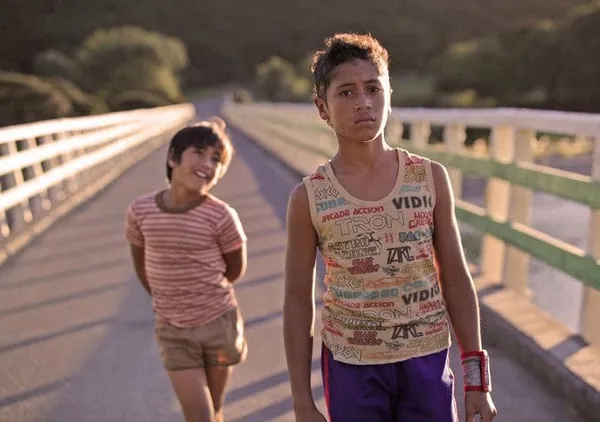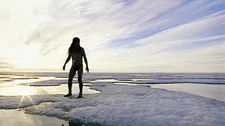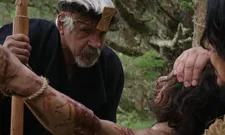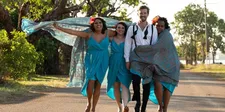 |
| Boy |
Monday marks International Day of the World's Indigenous Peoples. As UN secretary-general António Guterres notes in his consideration of the day: "Indigenous peoples around the world continue to face overwhelming marginalisation, discrimination and exclusion. Rooted in colonialism and patriarchy, these profound disparities are sustained by a deeply held resistance to recognising and respecting the rights, dignity, and freedoms of indigenous peoples."
The marginalisation many communities have faced has also extended to their portrayal on film in the past, where stories tended to be told by the colonisers, who all too frequently, exoticised and/or marginalised the portrayal of indigenous people on screen. That balance has thankfully begun to shift in recent years, thanks in no small part to the Sundance Film Festival which, largely under the guidance of Bird Runningwater, has long invested in nurturing indigenous voices, including its Indigenous Programme, which has seen more than 100 different Indigenous filmmakers mentored and supported through labs, grants and fellowships. Other organisations helping bring indigenous stories to light include Screen Australia's First Nations programme, in existence in some form since 1993, the International Sami Institute, founded in 2007, and Canada's Indigienous Screen Office, which was established in 2018, while Toronto's imagineNATIVE Film + Media Arts Festival has been bringing these stories to a wider audience since 2000.
The rise of on demand streaming is making these films more accessible than ever to wider audiences, so this week, we're shining our streaming spotlight on some of them.
Boy, Amazon Prime
When New Zealand director Taika Waititi won the Adapted Screenplay Oscar for Jojo Rabbit in 2019, he said: “I dedicate this to all the Indigenous kids all over the world who want to do art and dance and write stories”. Way back before he found world fame with the likes of that film and Thor: Ragnarok, Waititi, whose dad is from the Te Whanau-a-Apanui Maori people and whose mum is Jewish, made this delightful coming-of age tale - which only secured release in the UK after his Marvel success. He also stars as Alamein, a two-bit crook whose son (James Rolleston) idolises his fantasised image of him as an all-conquering hero. The youngster's imagination smacks hard into the reality of the situation when Alamein returns, not to connect with his kids but to try to find some stashed loot. Although this is really a celebration of the rough and tumble of childhood friendship, Waititi also manages to keep a surprising amount of sympathy with Boy's dad, even as his actions become increasingly reprehensible.
Atanarjuat: The Fast Runner, Apple TV
 |
| Atanarjuat, The Fast Runner, screening at this year's event |
Edge Of The Knife, Apple TV
 |
| Edge Of The Knife Photo: Niijang Xyaalas Productions |
Cousins, Netflix
 |
| Cousins |
Top End Wedding, Netflix, Amazon and other platforms
 |
| Top End Wedding |
Vai, Aya Films, from August 6 to 8
 |
| Vai |
Angry Inuk, Amazon Prime
 |
| Angry Inuk |
If you're looking for a place to start with indigenous film, you could do a lot worse that take a look at the Canadian National Film Board's selection, which are free to view here. As for our specific short selection, here's a couple of recommendations. First up, Throat Singing In Kangirsuk, which sees two girls play a favourite game
KATATJATUUK KANGIRSUMI (Throat Singing in Kangirsuk) from Wapikoni mobile on Vimeo.
and secondly, the short film Two Cars One Night, which would go on to be used as a springboard for Taika Waititi's Boy.





















